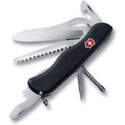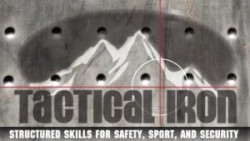Making do; many times I marvel at how wasteful a society our western culture can be. We are told that “convenience is king”, and if you need something, buy it. Very rarely are we told to save our money or the dreaded “make do with what you have” that parents around the world tell their kids or have heard as a kid. No new bicycle, Bobby!
Some things you cannot make do without easily. Some things come naturally when you put forth some effort. Don”t be too hasty to sell your gear or throw it away when you might be able to use it. I”m not saying be cheap or that you should save garbage! This is more a lesson in improvisation and the ability to make do, or in using what is at hand.
Here are a few tips. Of course a few are blatant, but some may stimulate your mind. Let”s see what you come up with and reply to this post!
- The water bottle- Starting with the easy stuff first. Buy a bottle of water at the store? Keep the empty bottle to refill. Keep it clean of course… but they last a really long time and are fairly tough. Milk jugs seem to deteriorate however; but the 12 oz. bottles last. They can also be used to waterproof documents or cache money, batteries, etc.
- String, Rope and Wire- Clothes line, hardware store twine, twisty cord wires, zip ties, bungee cords… you name it. If it can secure an item or if it can help you organize your gear keep it. I am not advocating hording piles and piles mind you, just save what seems prudent and reasonable. Hardware stores sell this stuff… why not just keep a few items and save some cash?
- Hardware- Screws, nails, L brackets, nuts and bolts, washers, and scrap metals. This stuff is vital in an area prone to hurricanes. If you already have a box of 3″ lag screws, you have half the materials to cover windows. Lumber is easier to find than screws and nails. I like the original black and white movie “Night of the Living Dead” where the young man is trying to board the doors and windows to keep out marauding zombies. In an emergency you don”t want to spend your time searching. Get your gear and materials and go!
- Scrap Wood- Seemingly another no brainer. Wood can be used to brace doors against looters, board windows, build shelves, etc. It also burns of course, so coupled with a steel drum or fireplace you have warmth and the ability to cook. I am amazed going to construction sites and finding so much scrap in the dumpsters. If you dive dumpsters on construction sites, ask permission first. Saves hassle, and is polite. (Some wood used in construction is treated with chemicals, so do not burn it indoors.)
- Card board- What? Boxes are easy to store, you break them down and stick them somewhere. Then when you need boxes to pack food, clothes, and other gear you have them at the ready. Store some packing tape too. Cardboard is also a decent insulator when dry.
- Plastic sheeting- Another good construction dumpster find. Some plastic is thick and rugged; some is thin and rips easy. You want the thicker mil, as they call it. You can buy it new, or just see what you find at home or garage sailing. Most people give the stuff away! It is great for making improvised shelter, poncho, ground cloth or waterproofing for your backpack.
- Batteries- This tip may seem eye-rollingly obvious but you would be amazed at some of the silly things I”ve seen folks do. First of all, buy rechargeable batteries when you can. You are throwing money away buying anything else unless they are impossible to get rechargeable or if they seem to fail unless they are alkaline. Secondly, purchase an inexpensive Radio Shack battery tester. Even save “low” charged batteries, they will work in remotes, clocks and other low draw items for a surprising amount of time.
- Containers- Tupperware, zip lock bags, backpacks, jars, tool boxes, and the like. Save a few of these items when you are thinking “I don”t need this anymore”, and put them towards your survival or camping gear. Stuff in good order that REALLY is not needed can be sold at a garage sale or flea market. Seriously, it”s hard to set aside money for survival gear of all things!Why not make what you can stretch, or pay for itself when possible.
- Tools- Never throw away a working tool. You have what is called a “barter item”. Don”t go out and purchase stuff to barter or trade with. Use what you have and what you don”t need. For instance, corded drills are sort of un-cool nowadays, but honestly they have more torque and they work fine. Old hammers, crow bars, jacks, screw drivers…you name it. It may not be worth anything to you, but to the guy trying to rebuild his house after a tornado it is priceless. This is another item that can make you money on eBay, Craigslist, garage sales, and at the flea market.
- Clothing- I am not advocating saving styles that are painful to look at! But some things never go out of style, and you can use this article of clothing to cache for later, use to work in, keep spare in a survival kit, or be ready to give to others after a catastrophe. Giving to Goodwill is a great thing to do, but clothing that fits you that you own is a good thing. One or two sets of shirts, pants, and undergarments are enough. Spare jackets, gloves, hats, and boots are very nice to have tucked away for an emergency too.
- Pots, Pans and Utensils- Keep a frying pan, sauce pan and some utensils in a small box ready to go. Another decent barter item or donation to the needy. Remember it”s difficult to cook without pans! It looks easy to cook a piece of beef on a stick in the movies, but it is a pain. Tip: Plastic “disposable” spoons and forks actually can be reused quite a bit. Always include some kind of pot in your survival kit to boil water, and a steel or plastic cup. (I know you can buy titanium survival sporks at REI, but again we are making do!)
- Books- Books are another item that is sort of un-cool today.Kindle, laptops, iPads, and smart phones make books seem a waste of space. In an emergency there may not be power…or we could experience the oft talked about EMP or Electromagnetic Pulse. Anyway, at least books on how to repair, cook, or operate machinery should be kept. Some good ones would be: The Air Force Survival Manual, Chilton”s Manual for your vehicle, Red Cross First Aid, Edible Plants, Poisonous Snakes and Insects, etc.
So there are 12 categories to begin with. Hopefully you thought of some things to add and will post them. Honestly, it is not so much the item as the mindset. You must be able to improvise or use things expediently. You could be caught away from family and survival gear. You may have to dumpster dive, or use what you have on hand to make a shelter or prepare food. One may have to do repairs on a vehicle, or apply first aid with duct tape and plastic bags. Get into the frame of mind to make do, and then you can survive WITHOUT your survival gear.
Copyright 2010 by duracles. Reprint permission granted if article remains completely intact.










Recent Comments